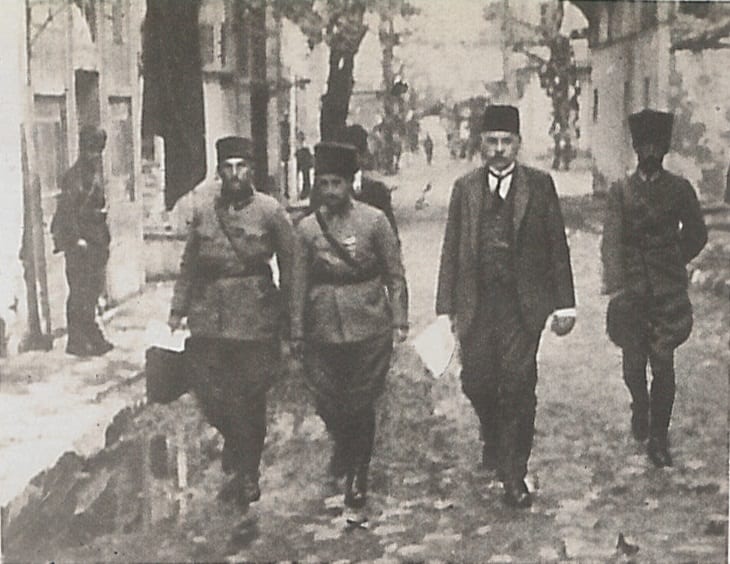“deaf as he was, and deafer than he really was” – İsmet İnönü’s diplomatic skill – turning off his hearing aid
By H Dominic W Stiles, on 11 May 2018
İsmet İnönü (1884-1973), the Turkish delegate at the Armistice of Mudanya, and later representative in negotiations for the 1923 Treaty of Lausanne, had hearing loss. He became Prime Minister of Turkey and President. He had been a gunnery officer, so I wonder if his hearing loss was related to that. Among other things, The Times for the 18th of November, 1922, said of him, “His reputation during the Great War was that of a safe, hard-working, rather cautious Staff Colonel, deaf, and consequently short-tempered, and a terror to slack or casual subordinates.”
At any rate, during the negotiations at Lausanne, in what Cleveland calls “a classic in the annals of international diplomacy” it seems that when Lord Curzon spoke, İsmet would turn off his hearing aid, and only turn it back on afterwards, restating his original position “as though the British Foreign Secretary had never uttered a word” (Cleveland, chapter 10, 2016).
Later, Sir Charles Harington, in a speech quoted indirectly in The Times said,
Referring to Chanak and the Mudania Conference, Sir Charles said it was a near thing, but there were three factors in the problem. The greatest factor was Lord Curzon himself in Paris; the nextwas the splendid body of reinforcements sent to him; and the other was the friendship he formed, after the fifth day at Mudania, with General Ismet Pasha. It was quite safe to say that, difficult as Ismet Pasha was, deaf as he was, and deafer than he really was (laughter), they had made great friends. (The Times, 21st of November, 1923)
He is second from the left in this photo of the Turkish Mudanya delegation, from a postcard in our collection, where Selwyn Oxley noted Ismet Pasha (an honorary title) was deaf.
It would be interesting to know where his hearing aid came from, as I have no idea how many manufacturers were making them at that time. If you can add anything about his hearing loss, please do in the comment field below.
 William L. Cleveland, Martin Bunton, A History of the Modern Middle East (6th ed. 2016)
William L. Cleveland, Martin Bunton, A History of the Modern Middle East (6th ed. 2016)
The Times (London, England), Saturday, Nov 18, 1922; pg. 11; Issue 43192
The Times (London, England), Wednesday, Nov 21, 1923; pg. 11; Issue 43504
 Close
Close

